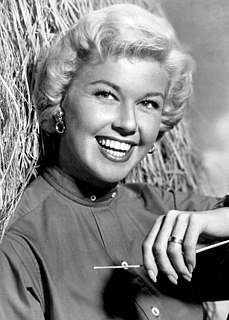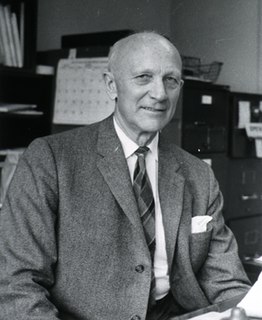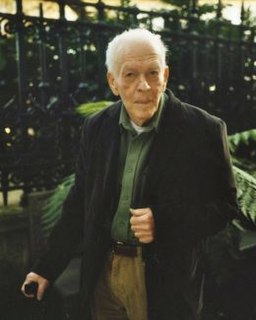A Quote by Edward Young
Man wants but little, nor that little long; How soon must he resign his very dust, Which frugal nature lent him for an hour!
Related Quotes
If you put a little pin in the middle and you make a little space, a little circle, then the nature of the mirror shines through. So now you know the mind is not dust, that behind that dust there is this mirror-like nature of the mind, and if it's a big enough hole, you might be so transfixed by the hole you don't notice the rest of the dust.
What a man does, that he has. What has he to do with hope or fear? In himself is his might. Let him regard no good as solid but that which is in his nature, and which must grow out of him as long as he exists. The goods of fortune may come and go like summer leaves; let him scatter them on every wind as the momentary signs of his infinite productiveness.
You are different from the really great man in only one thing: The great man, at one time, also was a very little man, but he developed one important ability: he learned to see where he was small in his thinking, and actions. Under the pressure of some task which was dear to him he learned better and better to sense the threat that comes from his smallness and pettiness. The great man, then, knows when and in what he is a little man.
Almost all of "Julie" was shot on location in Carmel, which is a lovely resort town a little south of San Francisco. My co-star was Louis Jourdan, whom I liked very much. An amiable man, very gentle, very much interested in the people around him; we had a good rapport and I found talking to him a joy . . . We would take long walks on the beautiful Carmel beach, chatting by the hour.
In spite of all these disquieting triumphs in the field of natural science, it's astonishing how little man has learned about himself, and how much there is to learn. How little we know about this brain which made social evolution possible, and of the mind. How little we know of the nature and spirit of man and God. We stand now before this inner frontier of ignorance. If we could pass it, we might well discover the meaning of life and understand man's destiny.
There’s one thing that’s been 'learned' maybe from Tunisia and Egypt that I think is a mistake. And that is that the existing ruler has to resign. He doesn’t have to resign. You take all the supports out from under him; he falls. No matter what he wants to do. This is the distinction in the analyses between nonviolent coercion in which he has to resign, but he’s forced into it, and disintegration when the regime simply falls apart. There’s nobody left with enough power to resign.
There is a time in every man's education when he arrives at the conviction that envy is ignorance; that imitation is suicide; that he must take himself for better, for worse, as his portion; that though the wide universe is full of good, no kernel of nourishing corn can come to him but through his toil bestowed on that plot of ground which is given to him to till. The power which resides in him is new in nature, and none but he knows what that is which he can do, nor does he know until he has tried.
That hour in the life of a man when first the help of humanity fails him, and he learns that in his obscurity and indigence humanity holds him a dog and no man: that hour is a hard one, but not the hardest. There is still another hour which follows, when he learns that in his infinite comparative minuteness and abjectness, the gods do likewise despise him, and own him not of their clan.
I had rather munch a crust of brown bread and an onion in a corner, without any more ado or ceremony, than feed upon turkey at another man?s table, where one is fain to sit mincing and chewing his meat an hour together, drink little, be always wiping his fingers and his chops, and never dare to cough nor sneeze, though he has never so much a mind to it, nor do a many things which a body may do freely by one?s self.
He who, in an enlightened and literary society, aspires to be a great poet, must first become a little child. He must take to pieces the whole web of his mind. He must unlearn much of that knowledge which has perhaps constituted hitherto his chief title to superiority. His very talents will be a hindrance to him.





































